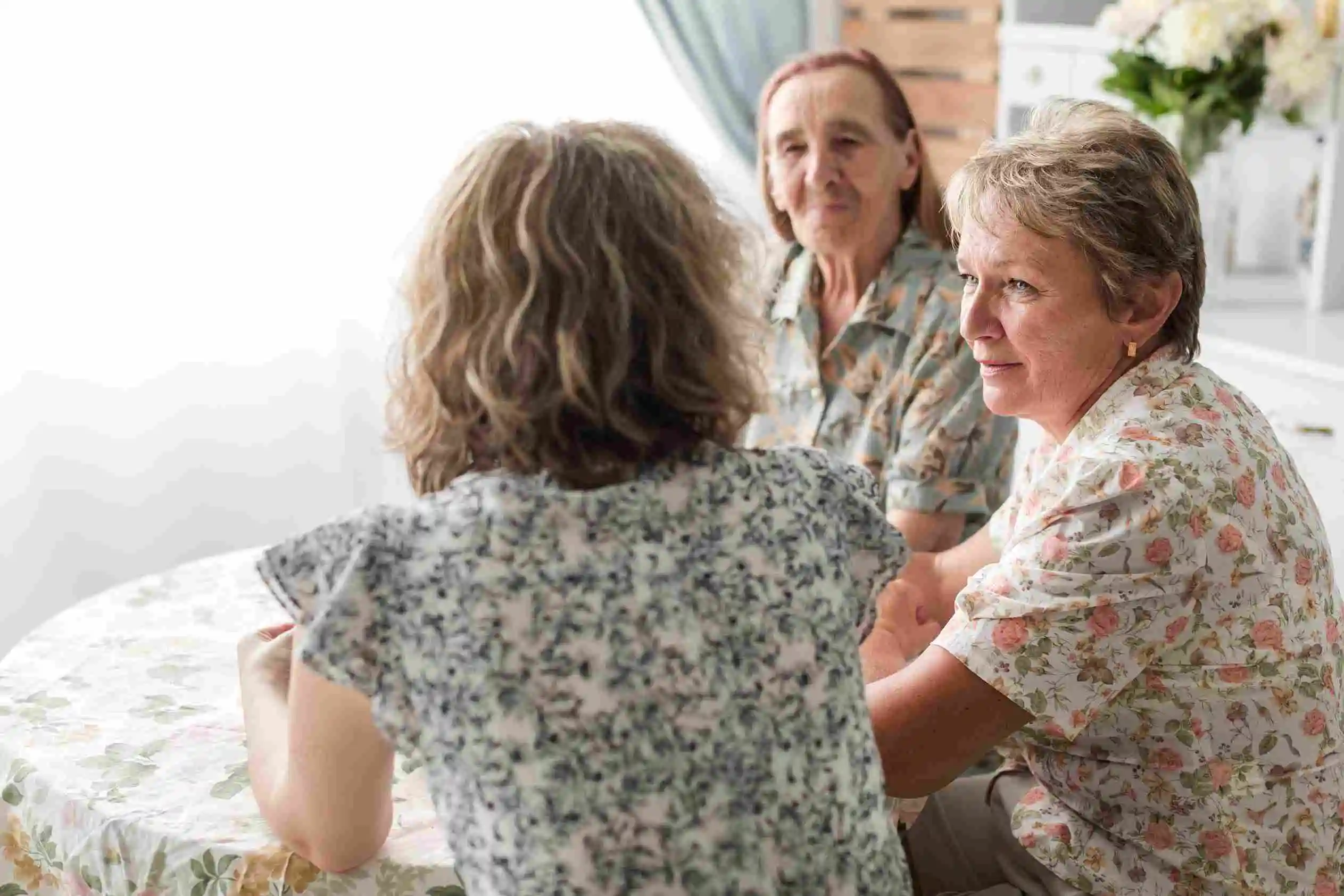A youngster diagnosed with a terminal disease will experience life in ways most families never anticipate. Regular activities school, job, and family dinners get replaced suddenly by hospital visits, medical procedures, and continual anxiety. The question of caring for children with serious illnesses becomes a constant concern. What’s the plan for care when the child is sick? parents most often ask.
It’s not just about medications or doctor’s appointments. Effective caring for children goes beyond clinical needs it's about creating a support system that helps the family manage the chaos while keeping things as normal as possible for the child. Parents don’t just want their children to feel better physically. They want them to feel loved, safe, and comforted, even in the hardest moments.
This is where reaching out for a free consultation with hospice care professionals can make a difference. These consultations provide guidance on creating a plan that includes both medical care and emotional support at home. Parents don’t have to figure it out alone there’s help available to ease the burden and offer practical advice when it’s needed most.
What Is the Role of a Caregiver for Kids?
When a child gets a life-limiting condition, the work of a pediatric caregiver becomes more important. Usually in the child's house's safety, a pediatric caregiver is someone who provides emotional as well as medical assistance. This might be a home health aide, a parent assuming care for a sick child, or even a nurse.
Still, being a caregiver goes beyond just supervising treatments or medications. It's about creating a space the child with their illness feels loved and sheltered in. Children in these kinds of situations need empathy, fortitude, and patience in their caregivers.
Caregivers support the emotional well-being of the kid in addition to doing medical chores. Even in the middle of adversity, they are there to reassure the youngster amid trying circumstances, ensure they feel heard, and provide brief happy moments.
Taking care of a kid at home implies that the responsibilities of caregivers are somewhat broad. These may comprise:
- Managing Medications and Treatments: Ensuring the kid gets the correct medicine at the correct moment, tracking symptoms, and liaising with specialists.
- Helping the youngster understand what is occurring, listening to their concerns, and making sure they feel protected can help to provide emotional support.
- Helping with bathing, clothing, food, and other daily tasks helps one to remain normal.
- Speaking for the Child's Needs: Ensuring that medical professionals, educational institutions, and other establishments grasp the particular requirements of the kid and their family.
Particularly for youngsters suffering from sickness, taking care of a kid at home provides comfort and familiarity. The job of a pediatric caregiver is to assist the kid in feeling as much as possible connected to their family, friends, and activities. The child's well-being may be much influenced by this emotional link.
Though it might be taxing, taking care of children with terminal conditions is also very significant. Caregivers can make every moment matter and provide priceless memories the family will treasure.
Creating a Home Care Plan for Children with Terminal Illnesses
Having a plan helps a kid with a terminal disease to feel more under control in an upsetting scenario. Home health care for children is about establishing a place where the kid feels soothed and protected, surrounded by the people most loved, not just about offering medical assistance.
Working with a nurse at home is really important in the scheme. Hospice nurses contribute more than just medical knowledge. They assist families manage the child's symptoms, provide useful daily care advice, and walk them through challenging choices. Having a nurse here also relieves parents as they do not have to bear the responsibility of providing care by themselves.
Still, it's not just about medication. Providing emotional support for children is much aided by child caregivers. They enable the continuation of routines, therefore ensuring that life seems as normal as it could. The youngster might find peace in little activities such as beloved books, nightly routines, or listening to known music.
Personalized home care is important. It's important to know what the youngster finds comfortable and modifying the surroundings to meet their requirements. The kid should feel comfortable, and the family should be supported on this demanding path as well. Every minute is important, hence a well-considered strategy may help those times to seem significant and full of love.
Emotional Support for Children and Families

One of the toughest aspects of looking after a sick family member, especially a child, for parents is keeping everything together while trying to be strong. At times the emotional weight might seem intolerable. While trying to provide their kid comfort and stability, parents are always juggling doctor's visits, prescriptions, and therapies. It is tiresome. For this reason, parents with unwell children need help. Families require a network of support whether it comes from friends, relatives, or professional hospice care providers.
One of the most valuable resources for families is home health care for children through hospice programs. Hospice care is often misunderstood it’s not just about managing a child’s medical needs. It’s about providing emotional and practical support to make life at home as peaceful and comfortable as possible. A nurse at home becomes more than just a healthcare professional; they become a trusted part of the family’s care team. They offer reassurance when things feel overwhelming and help parents make difficult decisions with confidence.
In-home care for kids, one of the most important aspects is communication. Children, no matter how young, can sense when something isn’t right. Trying to shield them from the truth can create confusion and fear. Instead, parents should aim to create a safe, open space where their child feels comfortable asking questions and expressing emotions. It’s okay if parents don’t have all the answers. What matters most is making sure the child knows they are loved, heard, and supported, no matter what.
Small moments of connection mean everything reading a favorite story, holding their hand, or just sitting quietly together can bring more comfort than words ever could. These moments remind the child that they are not alone, even in the hardest times.
At the same time, caregivers must recognize their own emotional needs. Caring for a sick family member can be emotionally draining, and it’s easy for parents to put their own well-being last. But emotional support for children is just as important as the care they give. Hospice teams often provide free consultations to help families navigate their emotions and build coping strategies. Whether it’s through counseling, joining a support group, or simply having someone to talk to, parents must take care of themselves, too.
There’s no easy way to walk this path, but families should never feel like they have to do it alone. Hospice programs, home health care for children, and nurses at home offer more than just medical care they provide comfort, understanding, and guidance when families need it most. Children and hospice care are about more than end-of-life support; they are about making every moment meaningful, creating peace, and finding strength in love and connection.
Even in the most difficult times, there’s always someone to turn to. Families can reach out for free consultations and start building a network of support that will help them through each step of this journey. No family should ever feel alone.
Providing Compassionate Care for Children with Terminal Illnesses
Caring for a child with a terminal illness is one of life’s hardest journeys. Families face emotional, physical, and logistical challenges that can feel overwhelming. The key to navigating this experience is a combination of compassionate care, practical planning, and emotional support for both the child and their caregivers.
Creating a home care plan helps families manage daily routines, coordinate medical care, and maintain a sense of stability for the child. Working with a hospice nurse at home can ease the burden by providing expert medical guidance and emotional reassurance. Hospice care isn’t just about managing symptoms; it’s about helping families make the most of their time together and ensuring the child feels safe, loved, and comfortable.
Emotional support is equally important. Caregivers must be open to talking with their child about the illness in an age-appropriate way, offering comfort and answering questions honestly. Parents and family members also need to care for their own emotional well-being, recognizing when it’s time to seek help from counselors or support groups.
Remember, you don’t have to go through this alone. There are professionals and resources available to help guide you through the difficult moments. Reach out for support whether it’s from a hospice team, a nurse at home, or trusted family and friends. Compassionate care starts with kindness, patience, and knowing that every small moment of love and connection makes a difference.




.jpg)












.webp)




.webp)


